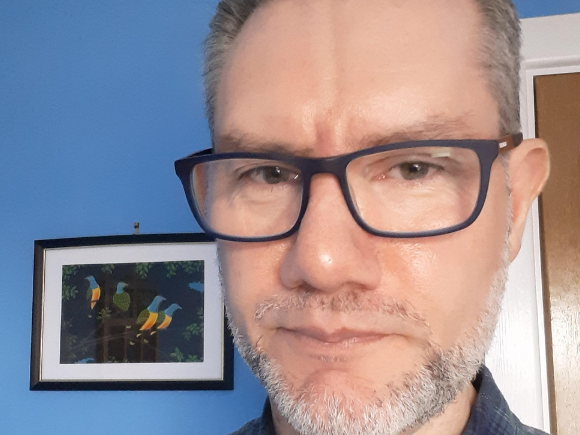
Professor Ben Makepeace is the Chair in Vector-Borne Diseases at the University of Liverpool. He was the first person in his extended family to attend university, and his interest in science began with marine biology. He pursued his undergraduate degree in Biology & Oceanography at the University of Southampton.
As he progressed through the course, he became more intrigued by tropical medicine and infectious diseases. This prompted him to pursue an MSc in Applied Parasitology & Medical Entomology at LSTM in 1994. He followed this up with a PhD in Molecular Microbiology back at the University of Southampton.
Ben received a scholarship from the Medical Research Council to study at LSTM. The scholarship covered course fees and living costs, which gave him financial peace of mind and helped him focus on learning. Without the MRC scholarship, it is unlikely Ben would have been able to study at LSTM. He worried about getting into debt and probably would have gone directly into paid employment instead. The scholarship was a significant boost to Ben's educational and career opportunities, allowing him to pursue his passion for medical entomology and parasitology.
After his PhD, he returned to LSTM in 2001, where he held several postdoctoral positions, including researching treatments for river blindness using a cattle model in Cameroon, and a brief stint working on symbionts in mosquitoes. He faced many challenges during this time, including dealing with short-term contracts and finding funding in the neglected tropical disease field.
In 2008, the Veterinary Parasitology group led by Profs. Diana Williams and Sandy Trees (now Lord Trees) moved from LSTM to the University of Liverpool, where Ben started as a Research Fellow supported by European Commission funding. He eventually attained a lectureship position in 2014 and was recently promoted to Chair in Vector-Borne Diseases in 2022.
Currently, his research involves studying filarial worms, such as the agent of river blindness, as well as mite- and tick-borne diseases. He is also responsible for leading the Tick Cell Biobank, a large collection of invertebrate cell lines funded by the Wellcome Trust.
Ben's MSc experience at LSTM was an unforgettable one that gave him the confidence to pursue a career in research, especially research involving fieldwork. It also cemented in him an ambition to work in the tropics, which he realised a few years later when he got a postdoctoral position in the Veterinary Parasitology group at LSTM. This involved intermittent periods of fieldwork in Cameroon for many years.
When asked for advice for prospective students at LSTM, Ben recommends taking the time to explore Liverpool with fellow students and getting to know them outside the classroom. He also advises asking lots of questions from lecturers and getting a project with some overseas experience if possible because it might just get students hooked.
We want to hear from you and learn about your post-graduation journey. Share your success stories, challenges, and experiences with us. Your insights will help inspire and guide the next generation of graduates. Get in touch with us today and let's stay connected!